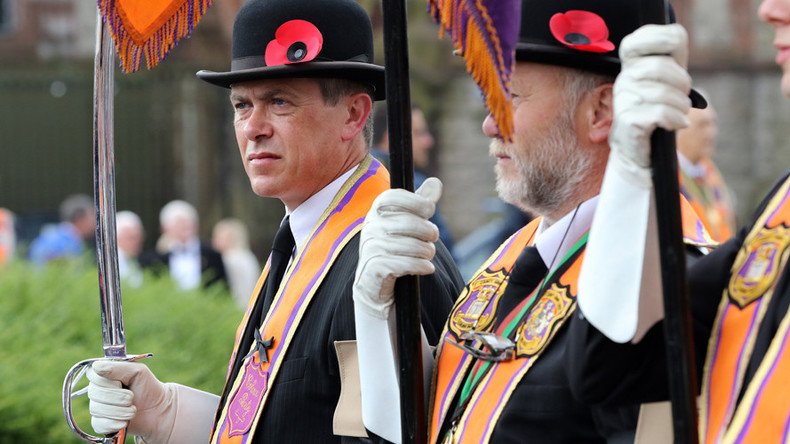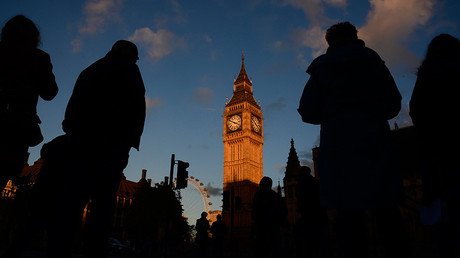Will Tory-DUP deal reignite N. Ireland’s Catholic-Protestant tensions?

Northern Ireland’s Protestant Orange Order has urged the Democratic Unionist Party (DUP) to use its newfound political influence over Tory Prime Minister Theresa May to get a ban on its controversial annual march lifted.
The DUP, which has close links with the Loyal Orange Institution, is reportedly under pressure to use its new kingmaker role to extract concessions from the Conservatives.
The Orange Order is a masonic-style, hyper-conservative religious and political organization which grew out of Northern Ireland’s centuries-long sectarian conflict.
The DUP itself was at the center of a bloody sectarian divide during Northern Ireland’s Troubles – a conflict involving rival paramilitary groups and the British Army which claimed more than 3,000 lives over 30 years.
Concessions from the Tories might include the dropping of a ban on a controversial march by the Protestant order through a Catholic area of Northern Ireland’s Portadown along Garvaghy Road.
The local branch of the order wants to the see the march restored after it was banned in 1998 following riots and the death of three young boys when their house was firebombed by Loyalists.
In a tweet on Saturday, the local lodge said: “We trust that the parading issue especially in Portadown will be high on the agenda for the new Government.”
Critics say a DUP-Tory deal could damage the hard-won peace process in Northern Ireland.
Enda Kenny, the Taoiseach (prime minister) of the Republic of Ireland, contacted Theresa May on Sunday to raise his concerns.
Sinn Féin claim the Tory-DUP coalition is in breach of the Good Friday Agreement.
— Scott Nelson (@SocialistVoice) June 11, 2017
They are correct @sinnfeinireland#DUPCoalitionpic.twitter.com/GLLWwL5zwE
He later told the Times that “nothing should happen” to endanger the settlement.
May’s decision to strike a deal with the DUP is particularly galling to its critics, as the Tory leader repeatedly attacked Labour chief Jeremy Corbyn ahead of the election for talking to Irish Republican leaders in the 1970s.
Corbyn has met representatives of Sinn Fein - the political arm of the paramilitary Irish Republican Army (IRA) - including Gerry Adams and the late Martin McGuinness on a number of occasions during his career.
He has always maintained this was to support the peace process. Although she did not comment on the rumors of loosening the ban on the march, DUP leader Arlene Foster said in a statement that her party would “be working to agree arrangements that can provide the whole nation with good government.”
“The DUP will work to bring about outcomes that are beneficial to all, and in Parliament Northern Ireland’s case will be center stage.”
In separate comments, Foster told Reuters that a good Brexit deal was also high among the party’s aims.
“We stood on a clear policy platform of wanting to strengthen the Union, of working for a good deal for Northern Ireland as the United Kingdom leaves the EU, and of promising to do our best to get Stormont up and running again for the benefit of all,” she said.
“We will use the position we find ourselves in to do as we promised.”













